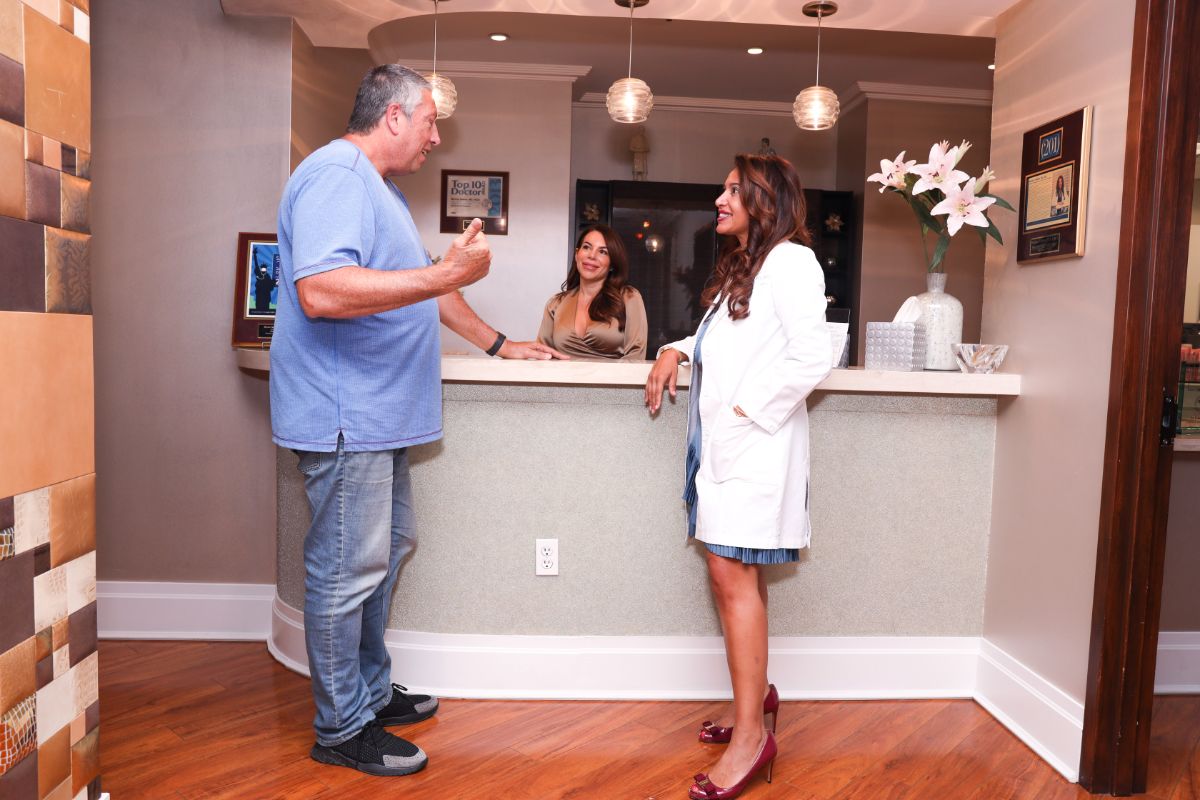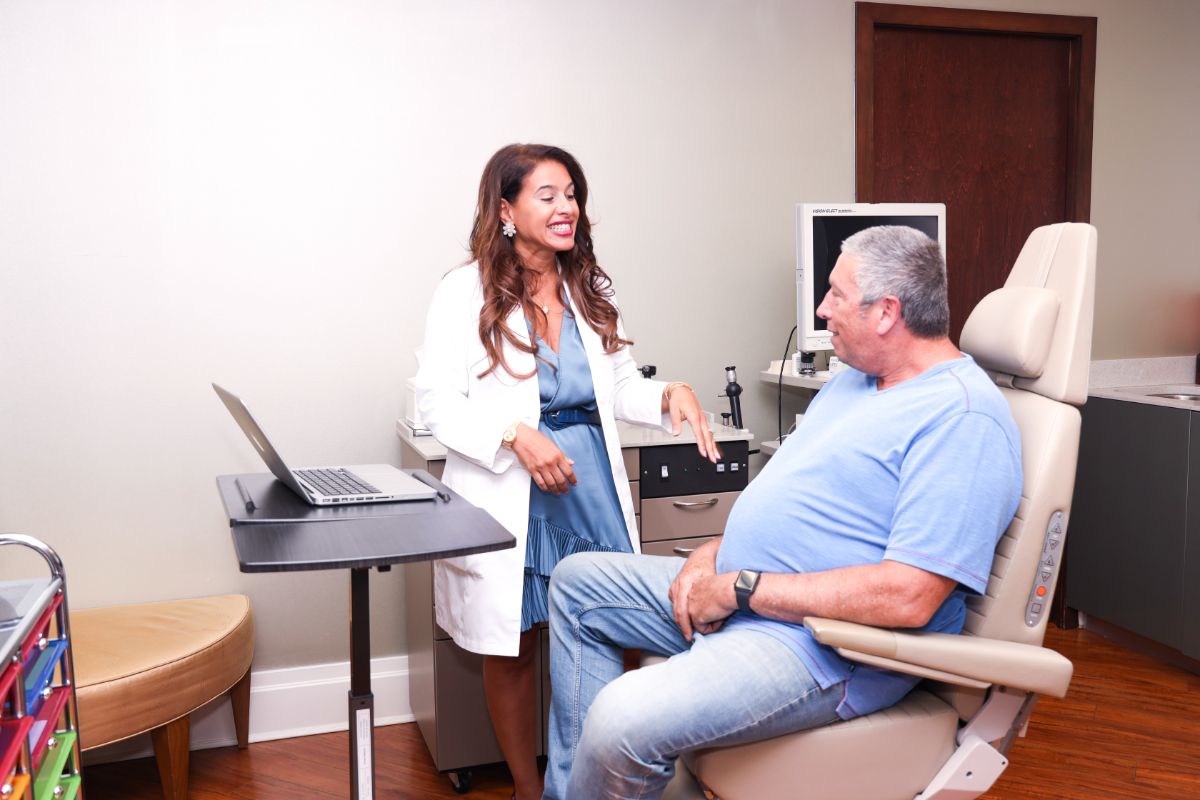No matter how long (or short) your surgery lasts, you’re going to need to recover. This might be difficult for you if you’re an aggressive, busy, type-A person. Even though Dr. Tadros uses rapid recovery techniques that keep you feeling great, it’s important to recognize that your body is still healing. You must give yourself ample time to rest. That way, your body will heal as Dr. Tadros intends. Consider this blog as a surgical procedure recovery guide. Herein, you will find some general principles to help you bounce back in the best shape possible.
Connect With Your Team
We use such minimally invasive techniques that recovery these days is considered minimal and relatively painless. Developing a good rapport with your doctor and their team is crucial. Dr. Tadros emphasizes the importance of having a dedicated patient care coordinator to keep you informed and help you through your surgical journey.
Educate Yourself
It’s important to fully understand how a surgical procedure can correct your condition. When possible, Dr. Monica Tadros uses visuals to explain the goals of surgery and predictable outcomes. She wants her patients to be fully educated about their procedure, what to expect, and why precautions are important to have the best possible recovery. Dr. Monica Tadros also insists that significant others are part of the initial evaluation and surgical treatment plan. When family members are all on board, things run smoothly.
Don’t Be In A Hurry
Recovery takes time. And time is an investment. We know you want to get back to your life. You’ve got things to do. People rely on you to make decisions. Kids and spouses count on you (and they’re likely helping you a lot of late). But after surgery, your recovery is priority number one. Everything else in your life must take a backseat (not forever, just for a little while). Work, family obligations, travel, physical fitness goals – you’ll have to have the discipline to put these things on hold. To recover completely, you must give yourself the specific time you need to recover. If not, you might complicate your recovery. This could happen through overworking yourself – doing too much too quickly.
Stick To Your Nutrition
Some procedures might warrant certain nutritional restrictions. Dr. Tadros might recommend limiting or completely eliminating certain foods or food groups from your diet. Regardless of your nutritional guidelines, adhere to them. Unless the doctor says otherwise, ensure you get plenty of macronutrients like protein, fat, and carbohydrate. Furthermore, drink plenty of water. Men ought to drink 15.5 cups (3.7 liters) per day. For women, that’s 11.5 cups (2.7 liters) per day. Fruits and vegetables also provide excellent sources of hydration.
Get Those Zzzs
Sleep remains a critical ingredient for proper health. Though that’s true in life, it’s especially true after surgery. Your mind and body need sleep to heal and regenerate. Once the surgery is complete, you’ll likely feel tired and weak. These feelings are normal – your body has been through something somewhat stressful. Since you’re in recovery, you might find that you need more sleep than usual. If that’s true, then allow yourself to sleep. Craving a nap during the day? Take one. Prioritize and protect your rest.
Take Your Medications As Prescribed
Depending on your procedure, Dr. Tadros may prescribe you medication. If she does, verify that you’re taking it as prescribed. For some patients, this comes down to trust. Based on her experience, Dr. Tadros carefully selected which medications and dosages would best help your recovery. If you’re experiencing undue difficulties with your medication or think you need to make a change, speak with the doctor first. Never take your medication outside its prescribed guidelines.
Hire A Chauffeur
Many of our procedures (cosmetic facial plastic surgery, nasal obstruction, rhinoplasty, etc.) involve the face and head. While many times you feel great in a matter of days, some more involved procedures could have temporary side effects that affect your judgment, perception, and coordination, especially if you are taking pain medication after surgery. With that in mind, you need to refrain from driving. Have a relative or friend drive you to the center on the day of surgery. Likewise, have someone drive you home once Dr. Tadros releases you. As you recover, do not drive until the doctor clears you to do so. Have a relative or friend handle immediate errands, like refilling prescriptions.
Work Can Wait
Recovery means resting. Which means you shouldn’t be working. Speak with Dr. Tadros about what your recovery time might be and your employer about ensuring you have plenty of time to follow her lead. Though we understand that you have many different responsibilities, put all these on pause while recovering. Therefore, set appropriate boundaries with your employer, coworkers, customers, and clients. Plus, if you allow yourself the appropriate time, you’ll return to the grind faster than if you don’t. When you do return, you’ll be better than ever.


